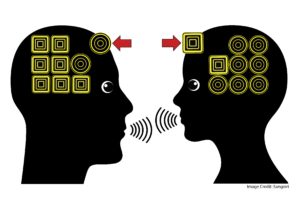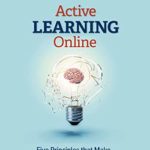 With news that several very effective vaccines will be increasingly available over the upcoming months, we teachers can now start thinking about “a return to normal”: that is — in person teaching as we (mostly) worked before February of 2020.
With news that several very effective vaccines will be increasingly available over the upcoming months, we teachers can now start thinking about “a return to normal”: that is — in person teaching as we (mostly) worked before February of 2020.
One question will inevitably be debated: did online learning work?
I suspect that the “debate” will go something like this. One voice will stake an emphatic opinion: ONLINE CLASSES WERE AN UNEXPECTED TRIUMPH! Some data will be offered up, perhaps accompanied by a few stories.
An equally emphatic voice will respond: ONLINE CLASSES FAILED STUDENTS, TEACHERS, AND PARENTS! More data. More stories.
This heated exchange will reverberate, perhaps improved by all of Twitter’s nuance and common sense.
A Better Way?
Rather than launch and participate a BATTLE OF EXTREMES, I hope we can look for a more level-headed approach. As is so often the case when research meets teaching, a key question should be boundary conditions.
Whenever we look for a research finding (e.g.: drawing helps students learn!), we should ask: under what precise conditions is this true?
Does drawing help older students and younger ones? In math and in phonics? Autistic students, dyslexic students, aphantasic students, and neurotypical students?
We’re always looking for boundaries, because every research finding has boundaries. As Dylan Wiliam (who will be speaking at our February Conference) famously says: “When it comes to educational interventions, everything works somewhere. Nothing works everywhere.”
If we ask about boundary conditions for the strengths and weaknesses of online learning, we can have a much more productive discussion.
Places to Start
Age: I suspect we’ll find that — on average — older students did better with online classes than younger ones. My friends who teach college/high school don’t love online teaching, but they don’t seem quite as overwhelmed/defeated by those who teach younger grades.
Additional Technology: Is it better to have a simple Zoom-like platform with occasional breakout sessions? Does it help to use additional, elaborate programs to supplement online learning?
Discipline: Perhaps online teaching worked better with one kind of class (science?) than another (physical education?).
Personality: Although most high school students I know emphatically prefer in-person classes, I do know two who greatly prefer the online version. Both really struggle negotiating adolescent social networks; they’ve been frankly grateful to escape from those pressures and frustrations.
Teachers’ personalities could matter as well. Some of us comfortably roll with the punches. Some of us feel set in our ways.
Administration: Did some school leaders find more effective ways to manage transitions and support teachers and students? The question “does online learning work” might get different answers depending on the managerial skill supervising the whole process. (In my work, I find teachers appreciated decisiveness and clear communication above all else. Even when they didn’t like the decision itself, they liked knowing that a decision had been made.)
SES: No doubt the socio-economic status (SES) of school districts made a big difference. It’s hard to run online classes in schools and communities that don’t have money for technology, or infrastructure to support its use.
Pedagogy: Do some styles of teaching work better online? Or — a slightly different version of this questions — do teachers and schools with experience “flipping the classroom” have greater success with an online model?
Teacher Experience: Perhaps well-seasoned teachers had more experience to draw on as they weathered the muddle? Or, perhaps younger teachers — comfortable with tech, not yet set in their ways — could handle all the transitions more freely?
Country/Culture: Do some countries or cultures manage this kind of unexpected social transition more effectively than others?
Two Final Points
First: We should, I think, expect complex and layered answers to our perfectly appropriate question.
In other words: online learning (a la Covid) probably worked well for these students studying this topic in this country using this technology. It was probably so-so for other students in other circumstances. No doubt it was quite terrible for still other students and disciplines and pedagogies.
Second: I myself have long been skeptical of the idea that “online learning is the future of education (and everything else)!”
And yet, I don’t think we can fairly judge the validity of that claim based on this last year’s experience.
After all: most teachers and school and students didn’t get well-designed and deliberately-chosen online education. They got what-can-we-throw-together-with-grit-and-hope online education.
Of course that didn’t work as well as our old ways (for most students). Nothing worked well: restaurants struggled to adjust. The travel industry struggled. Retail struggled.
Yes: I think that — for almost everybody learning almost everything — in-person learning is likely to be more effective. But I myself won’t judge the whole question based on this year’s schooling.
We all benefit from forgiveness for our lapses and muddles during Covid times.
Let’s learn what we reasonably can about online education, and use that experience to improve in-person and remote learning in the future.




Thanks for sharing such a great information .. It really helpful to me.. I always search to read the quality content and finally i found this in you post. keep it up!